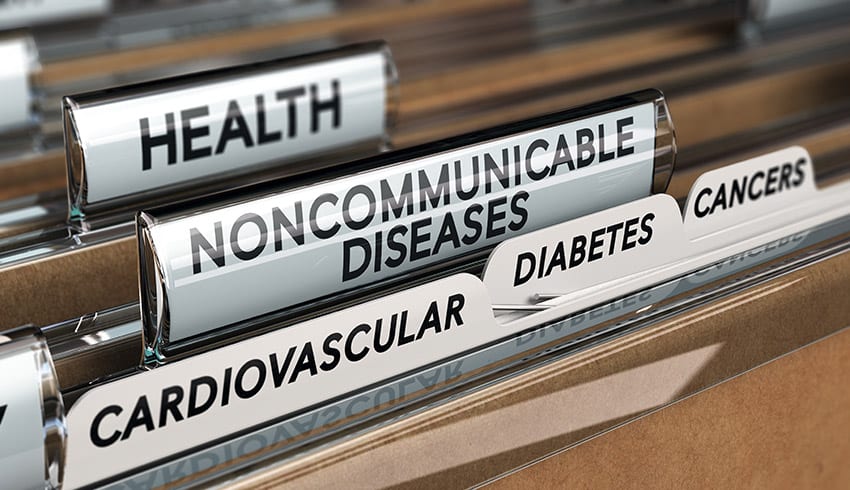Health Minister To SIDS: Place Public Health Over Profit
Non-communicable diseases threaten the health and national development of small island developing states (SIDS), and Minister of Health and Wellness, Senator Dr. the Most Honourable Jerome Walcott, has urged SIDS to act boldly by prioritising public health over profit.
He was speaking at the opening ceremony of the global conference, “Addressing the Commercial Determinants of NCDs in Caribbean SIDS: Protecting NCD Policymaking from Conflicts of Interest and Undue Influence”, hosted by the Pan American Health Organization and the Healthy Caribbean Coalition. The conference is taking place from October 15 to 17 at the Courtyard by Marriott, Hastings, Christ Church.
The Health Minister said there was a profound shift in disease patterns globally with non-communicable diseases (NCDs), such as cancer, cardiovascular and chronic respiratory diseases, and diabetes, accounting for over 40 million deaths annually (74 per cent of global mortality).
He noted that in low and middle-income countries, where 85 per cent of these premature NCD deaths occur, the financial strain from treatment could lead to catastrophic household expenditure and enormous losses in productivity.
Senator Walcott stated that regarding the commercial determinants of NCDs, four major industries – tobacco, alcohol, ultra-processed foods, and fossil fuels – were responsible for more than a third of global deaths.
“The economic and political power rivals that of nations, enabling them to shape policy and public perception while promoting products that have been shown scientifically to be harmful. This, regrettably, often results in a policy inertia and hesitation to act decisively on health.
“These corporate forces operate at both levels, shaping policy and trade agreements upstream, while influencing norms, advertising, and accessibility downstream. Colleagues, our understanding of and our ability to counter these forces is essential if we are to protect public health,” he emphasised, pointing out that SIDS needed to understand and counter what is known as the corporate playbook, a sophisticated set of strategies used to protect profit over public health.
The Health Minister said several corporations continually market unhealthy products, often targeting children and low-income populations.
“In many countries, including our region, advertising for unhealthy foods and beverages surrounds schools, thereby normalising harmful consumption. Some industry actors also invest heavily in lobbying, in recruiting former policymakers and using financial leverage to weaken or delay health regulations,” he stated.
Dr. Walcott further explained that some health policies stall because governments face the dilemma of balancing economic growth with population health.
He noted that while industries producing tobacco, alcohol, and sugary drinks contribute significantly to GDP and employment, their products also drive disease and premature death.
Senator Walcott added that, although these industries may boost short-term revenue, they have devastating long-term effects, as NCDs strain health systems, reduce productivity, and impede economic development.

The Health Minister noted that the conference was an opportunity to strengthen governance, coordination and accountability. He urged SIDS to develop their own Public Health Bill, one that anticipates and counters corporate tactics with strategic collective action.
“Governments and health institutions must establish and enforce strong conflict of interest safeguards. For tobacco, full exclusion from policy processes, as required under Article 5.3 of the WHO FCTC, must remain non-negotiable. For alcohol, given its inherent risks, engagement in policy development should also be limited. As it relates to engagement with the food industry, this will require caution with transparency and independent oversight to prevent undue influences,” Dr. Walcott shared.
He cited fiscal measures introduced in Barbados, such as excise taxes on unhealthy products, tobacco, alcohol and sugary drinks, and, more recently, on salty snacks, as among the most effective tools available, noting they reduce consumption while generating revenue for health promotion.
The Minister added that part of the transformative Mission Barbados initiative seeks to achieve a 50 per cent reduction in new cases of NCDs and a 50 per cent reduction in crime.
He encouraged SIDS to collaborate through CARICOM, PAHO, civil society coalitions and academic institutions, to share evidence, pool legal and advocacy resources, and defend the integrity of public health policymaking.
“Colleagues, the commercial determinants of health are now the most powerful and complex drivers of disease in our time. If left unchecked, they will continue to erode the health gains we have made. The path forward requires courage, collaboration and clarity of purpose. Let us therefore commit today to protecting our public health space from undue influence.
“Let us pursue policies guided by evidence, not by the weight of corporate interest, and let us be bold enough to enact and instill regulatory and governance measures that place the health of our citizens, especially of our most vulnerable, above all else,” Minister Walcott stressed.
Author: Melissa Rollock
Published: October 16, 2025
 Official Website of the Barbados Government
Official Website of the Barbados Government